Devil May Cry and Fahrenheit 451: A Contemporary Look at Media Control
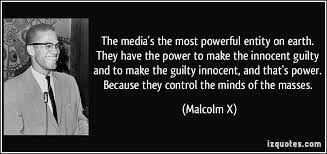
Information pervades our day-to-day lives in contemporary society. Different news stations, such as Fox, CNN, and CBS are responsible for what we “know” is happening in the world. They perpetuate certain ideas by spreading specific news stories. Similarly, society decides what is most important to believe depending upon the art and books that are popularly published and distributed. If an idea is considered unpopular, the media can promote it as a problem, or the government can ban it.
In 1953, Ray Bradbury published Fahrenheit 451, a novel that presents the dangers of controlled media. Fahrenheit 451 is set in Utopian America in which books are kept from the public to ensure the people remain docile. The post-world War II novel represents a world that is highly influenced by a fascist government. In 2013, Ninja Theory’s reboot of the Devil May Cry franchise with Devil May Cry (DmC) takes a less subtle approach. The demon king, Mundus, controls society through the perpetuation of frivolous lifestyles and his control of the news network. DmC and Fahrenheit 451 share similar themes, DmC modernizing them for a contemporary audience. Both the novel and the game present societies in which information is easily spread and acknowledge the issues revolving around controlled media. The concept of dystopian futures is not entirely uncommon. With films such as Blade Runner (1982), and books like The Hunger Games, this idea has prevailed for many a decade. Yet, what these concepts can teach us is most compelling. The dystopian future is often about giving too much power to the government, and not enough power to the people. This problem is usually caused by the inability to act or question what is happening around us. The people allow entertainment to fill their minds, or fear to keep them from acting, Most of all docility is most effective when the people that choose to speak are kept silent, and the people that are too dull to speak are kept entertained through the media. By controlling our media, the government can control what we know and believe to be true, we lose our individuality and we become a part of the machine.
Docility
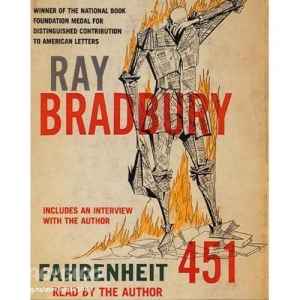
Controlling ideas can make a governed people docile. In Fahrenheit 451 people thrive off of technology and firemen burn books to prevent individual thought. The government believes that happiness comes from entertainment and fun, and the vast majority of people agree with this sentiment. When a fireman named Guy Montag doubts his actions, he rebels by reading books that he is supposed to burn. While returning from work, Montag meets Clarisse, an anomaly in the novel’s society:
I’m antisocial, they say. I don’t mix, it’s so strange. I‘m very social indeed. It all depends on what you mean by social, doesn’t it? Social to me means talking to you about things like this…Or talking about how strange the world is…An hour of TV class, an hour of basketball…another hour of transcription history…but do you know, we never ask questions, or at least most don’t (Bradbury 29).
She is considered antisocial because she asks questions, and is not satisfied with television. The government has established a controlling education system, and when Clarisse “rebels” too much, it is implied that the government machine kills her. The general populace thrives off of media rather than creative thinking, and the government keeps this idea by steadily removing books and creative thinkers. In DmC, the human world is controlled in secret by demons led by the demon king Mundus. Dante, a Nephilim (half-demon, half-angel) lives within this brain-washed society. Since childhood, Dante has been destroying the demons that have hunted him every day. The game opens with Dante taking two waitresses back from the Devil’s Dalliance to his trailer home at the Bellevue Pier. Dante’s – relatively – casual lifestyle is torn away when a young woman named Kat warns him of the danger he is in. Kat is a medium that can walk between Limbo and the real world. She grew up seeing the demons everywhere she went, but those very same demons worked tirelessly to keep her form acknowledging the truth of the world she lived in.
They told me I was crazy for seeing demons…Wanted to put me on drugs. Said it would make me better. They lied. They just wanted to keep me weak and docile…Vergil pulled me out of the nightmare
Unlike the humans that are incapable of acknowledging the demons around them, Kat has the power to see everything wrong with it. For this reason she has joined Vergil’s rogue group called, The Order that is determined to expose the demons to world and free Limbo City from their control. According to Vergil, “To Mundus, the world is a factory farm for human souls. And he likes to keep his animals monitored and docile.” Here we can easily draw some major similarities between Fahrenheit 451 and DmC. Like Montag, Dante’s knowledge of the world around him is revealed to be fairly limited. While he is capable of fighting against the demons that control the system, he does so purely to survive and does not seek to influence the bigger picture. It takes the presence of a female that does not fit in with the system to reveal the truth of what is happening. Dante places his trust into Kat and Vergil to guide him along the path to liberation. Apathy is no longer the course of action to take, and Dante sets his sights on Mundus’ means of spreading docility. Mundus is able to control the populous through the perpetuation of frivolous lifestyles and clever marketing. He has produced and sold a soft drink known as Virlity, according to Vergil “it’s lobotomy in a can.”Virility very distinctly represents commercialism at its finest. The common citizen in today’s world is often heavily invested in “brand names” for the sake of it. Loose statistics are thrown out in order to make products seem more appealing and society is so docile that it fails to combat these issues.
“Virility’s secret ingredient is what makes Virility the number one soft drink in the world. And best of all, it has been scientifically proven to improve weight loss by %21 and enhance sexual performance by %63 if drunk daily!” -Virility advertisement
The products we purchase may just as easily be full of carcinogens, or employ child-laborers to produce, but so long as it provides instant gratification the general populace can be satisfied. After all, how many people have actually questioned what Dr. Pepper’s 28 flavors really are?
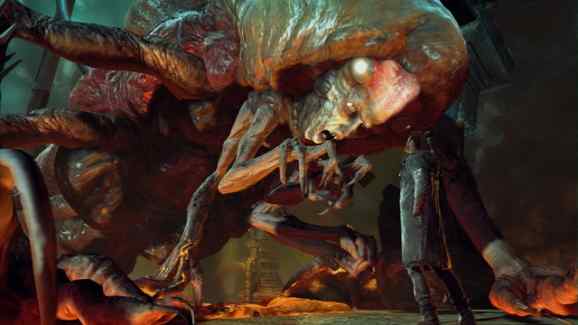
If we all are made docile, or face issues with apathetic docility, then change will not occur. This leaves room for each and every one of us to be indoctrinated into the system and – thus – become a part of the problem.
Indoctrination
Controlling ideas can indoctrinate the people. Guy Montag’s captain, Captain Beatty is so indoctrinated into the government’s ideals that he is able to positively argue the benefits of his work. Captain Beatty tells Montag that books are destroyed because we “must all be alike. Not everyone born free and equal, as the constitution says, but everyone made equal…a book is a loaded gun in the house next door. Burn it. Take the shot from the weapon. Breach man’s mind” (Bradbury 58). Beatty is convinced that happiness stems from entertainment and is reflective of the same education that Clarisse and her peers receive: “Ask yourself, what do we want in this country, above all? People want to be happy…Well aren’t they? Don’t we keep them moving, don’t we give them fun?” (Bradbury 59). He is convinced that happiness comes from “doing” rather than “thinking”, and his arguments – while compelling – are oppressive to individualism: “[Clarisse] didn’t want to know how a thing was done, but why. That can be embarrassing. You ask why a lot of things and you wind up very unhappy indeed, if you keep at it. The poor girl’s better off dead” (Brabdury 60). However, Clarisse was represented as anything but unhappy. She found joy in experiencing life rather than being told what life is. Montag is dissatisfied by Beatty’s many arguments and decides that he needs better reasons to burn books. In DmC Limbo City has been indoctrinated by Bob Barbas, the anchor of Raptor News Corporation.
“The monitoring is done by Raptor News Corporation, a global network of of CCTV cameras , satellites, and spies.” – Vergil
Anchors and reporters are – generally – trusted as reliable sources of information. However, while their reports are meant to be objective, all of the things said and all of the things that are presented in the news are heavily informed by the stations’ ideologies. Mundus uses Barbas to perpetuate specific ideas and further push his agenda. DmC reveals the issues revolving around indoctrination through media with Bob Barbas, whose reports turn the Limbo City Police Force (LCPF) against The Order.
“My personal view on the terrorists is that they are disgusting, degrading ghastly, sleazy, prurient, and generally nauseating. The worst of them is Dante, the whole world would benefit greatly by his non-existence.” – Bob Barbas
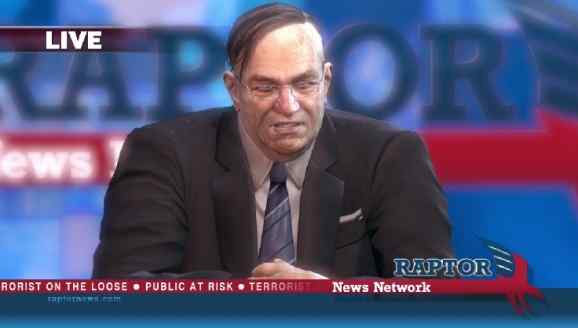
Bob Barbas uses language that sounds welcoming. In doing “God’s” work a very Christocentric society can find him relatable and trustworthy. His news reports are then deemed as absolute fact in this society, and this subtle indoctrination is what kept Kat from fighting back early on her life. She was raised believing she was crazy and states, “If you’re told something is true often enough, you tend to believe it.” Montag is told that book burning s a good thing, and Limbo City is told that The Order is full of dangerous terrorist. There is a societal expectation of what is “norm”, and this is defined by social media. If there was only a news network to tell us what to think, certainly the youth would not be affected. After all, how many younger people do we know that actually pay attention to the news? And out of those people, there is the danger of questioning the news. To combat this possibility Mundus adds another layer of indoctrination by maintaining a frivolous status quo. Mundus seeks absolute control and forcing docility is not enough with “Virility”. His mistress, and the mother of his child, Lilith, runs the Devil’s

Dalliance, a night club where debauchery is welcomed and encouraged. Upon entry there are women dancing on poles that contrast nicely with women clad in angel-esque lingerie. The night club’s true purpose is to lure celebrities, politicians, and elite socialites with drinks, drugs, and sexual desires so that Lilith may turn them into Spotters. The Spotters are demon collaborators that assist in finding Dante and members of The Order. In a way, they are the ultimate form of indoctrination as their conscious – human – selves are either destroyed or unaware of their actions. When Dante decides to capture LIlith and her child, he finds himself in a twisted, violent reality show.
“Hello my beautiful creatures, human and otherwise. From night club to fight club! We have a special event here for you tonight! So drink up, shoot up, and place your bets! Lets get high society…Welcome to the Devil has Talent!” – Lilith
Doesn’t this sound familiar? Violence has been historically celebrated throughout the years. From the Roman gladiators, to modern day boxing matches, society craves violence. Atop this, society craves televised violence. There is something about a mediated spectacle that feels “okay” to watch. We can disconnect ourselves from what is happening and enjoy the thrill of it without directly involving ourselves. Frivolous entertainment has often been used to distract everyone from what is really important. Far more people know the details of Miley Cyrus’ VMA 2013 performance than the details of what is happening in (for example) Iraq. There is a profound disinterest in what is really happening in the world, and anything that tells us about what is happening is from a severely biased perspective. Any violence that is presented to American society is glorified and misrepresented. I know this may sound like a “conspiracy theory”, but there is admittedly a lot wrong with the fact that there is more fandom for Justin Beiber than the activists that try to invoke positive change. A vast majority of people have been mediated so much that they have literally become a part of the machine, myself included. However, acknowledgement of these issues is the first step towards combating them.
Protestation
Protest is done through action and thought. Montag decides to approach a man named Faber who claims that books are important:
“because they have quality. And what does the word quality mean? To me it means texture. This book has pores…So now do you see why books are hated and feared? They show the pores in the face of life. The comfortable people want only wax moon faces, poreless, hairless, expressionless” (Bradbury 83).
Faber proactively contradicts society in his mind while Clarisse fought society through her actions. On one hand, Clarisse acted without knowing that what she was doing was necessarily a “rebellion,” however Faber knows he is rebelling but does not act. Fahrenheit 451 protests our reliance on mediated information and challenges us to think freely, even if rebellion can have dangerous implications.
DmC presents a different kind of society in which people are forced into their positions by the demons’ subtle manipulation. In DmC a more active role is taken to protest the demons’ manipulation. While the people in Fahrenheit 451 are capable of thinking for themselves, and may not know how to think, the demons’ brainwashing in DmC and their use of Virility prevents this type of autonomy. Dante and the order literally fight the machine through Dante’s and Vergil’s powers as Nephilim and Kat’s powers as a medium. Dante systematically destroys everything controlling society, first he kills the source of docility, then the two major sources of indoctrination. However, major products, anchors, and night club owners can always be replaced. Dante and Vergil aim for the source of all the manipulation and ultimately kill Mundus. In both Ninja Theory’s Devil May Cry and Bradbury’s Fahrenheit 451, information is controlled. Whether specific knowledge is being distributed, or knowledge is being kept from the general populace, ideas are ultimately formed based on what we are given. To protest against such action we must be willing to listen to other ideas. Just as Montag did in Fahrenheit 451, we must fight against the status quo to provoke positive change. If the information being kept from us is damaging, and the information we are getting is not progressing society forward, then society will remain docile or decompose. The ability to speak out, speak up, and make our own decisions based on different ideas is what makes us unique and can lead to choices being made individually rather than by the machine’s expectations.
“What was once hidden is now laid bare for all to see. Revolution is in the air.” – Vergil
What is absolutely brilliant about the approach taken with DmC is that it is able to critique society and educate its players on a very visceral level. Within the depths of the excitement that comes with destroying demons is the opportunity to see society for what it truly is: a machine. Ninja Theory’s approach accomplishes what literature like Fahrenheit 451 or Kurt Vonnegut’s Mother Night, or even Ben Fountain’s Billy Lynn’s Long Halftime Walk achieves through reading in a very interactive way. By playing through as Dante and “fighting” the system, we get a taste of what it may feel like to take action in our own lives. Certainly there is a delicious level of irony to the fact that these ideas are still “mediated” to us, but it is an idea that can lead to a very progressive future. For years games have been filled with compelling story-lines that allow us to escape reality, but DmC’s ability to judge the world as it is in a very fantastic way could very well be a new way to develop compelling plots for future games.
What do you think? Leave a comment.




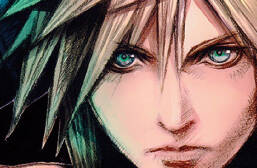






The ideas in this book are important.
Completed DMC and I must say I enjoyed every bit of the game. Dante in this reboot makes u like him in every mission. if u play the game and not just compare his cockiness in the demo you will see him mature through the game. And on a side note this is a reboot with Dante being half demon and half angel and not half demon and half human like the originals.
As a huge fan of the DMC games i have to admit that this new one is
simply brilliant!!Gameplay is perfect,story is finally interesting,and
Dante is full of life and personality and you can sympathize with
him,don’t get me wrong i love ”old” Dante but he was just cool and
nothing more.
I had a blast with DMC. After beating it the first time I found myself yearning to go back. The flaws it does have (and it does have them), are overshadowed by great gameplay, awesome music, and attitude.
I loved the message of the book and the layers of the characters but I’ve never played this video game. Maybe I should!
Anyone else notice the very obvious (if you know or researched anything about it at all) Illuminati references? When Kat takes Dante to ‘The Order’ where he meets Vergil the first time, she mentions, ‘demons are among us, enslaving us while we are asleep, controlled, and unaware.’ And that they had discovered them and their affiliates whom are ‘politicians, bankers, and popstars.’ This is very obvious and blatent to what’s happening in reality. Just why this was placed in the story of the games has me wondering, is it to make people aware? Or another subtle placement of their intentions in the game? It’s part of their method and belief to give a subtle, but blatent warning of intention before it’s done to free them of karmic punishment. They can say “We told you, but you didn’t listen, or paying attention.” I can’t honestly say Ninja Theory, based in the U.K. (Rothschild territory) did this to wake people up. Not when the gaming industry has been pulled under it’s influence, and many developers and companies are selling out. If you think I’m full of it, just Google, “Illuminati in video games”. It’s not new, and if you have a brain you’ll see it’s no coincidence. On a side note, how in the HELL did Dante not know who his damn twin was!!?? And had the nerve to ask who he was, they look the same but with different hair!! I think this Dante’s partying has rendered him as braindead as most of this generation.
I am playing the game now and noticed the references to illuminati and new world order. I thought it was pretty cool how they used that in game. Unfortunately, I don’t see it “waking anyone up”.
i just replayed the HD Collection (DMC 1,2&3) on PS3 man they were a blast (except 2)
–Roderick X
DMC1 – Epic
DMC2 – Terrible
DMC3 – Awsome
DMC4 – Lacking
DMC5 – reboot!
Your list is concise, and it may have little to do with the article, but it amuses me and I agree with it haha.
Have you ever read Noam Chomsky’s “Manufacturing Consent”? It’s an interesting read, and definitely applies here. It allows reader to get a look at the inner workings of what kind of media is “bad media”, but that’s oversimplifying to the extent of being wrong. If you’re interested in this kind of stuff, I’d definitely give him a shot. Great article!
That sounds really interesting! I think I would love to read that, thank you for the suggestion and kind words =].
I loved the original Devil May Cry games, so I was trepidations with the new look. But I’ve been playing and the game-play seems great. Dante’s character…was pretty nonexistent in the first series unfortunately though. I loved him when I was 13, but he just started seeming more and more…dickish. Despite the cliche’ angel/demon mix, he might be able to pull it off, and I’m eager to see if he can.
Somehow, I have gotten through life as an English major, book geek, and a science-fiction nerd without ever having read this book.
I never played the DMC reboot, but Fahrenheit 451 is the book which has had the largest impact of a book on how I view the world and literature as a whole. The key difference, as noted in your essay, is that DMC forces a change while the change in Fahrenheit 451 was supported, endorsed, and accelerated by the general populace. In today’s media-soaked society, where there is so much variety and instantaneous gratification, the populace-backed change is far more plausible than DMC’s forced change. We have a vast number of options as to what we consume, and our (my generation’s) need to consume only what’s deemed the most important in the fastest amount of time is more likely to cause the shift to a media-sponsored version of “reality.”
I really loved this article, and just wanted to raise the idea that perhaps it is not outside forces that could change our worldview, but it is rather the massive amount of accessibility that has caused said change.
They cant ever reach the level of epicness from the first game. The 1 game still the best one who says otherwise is just ignorant… DMC 2 is awful or Terrible, DMC 3 is awesome, DMC 4 is kinda mediocre… half of the game you just come back with dante to the begging again really!! The DMC 5 or reboot looks great but lacks in something, i can’t explain, i am a long time Fan from DMC since the first one. Like I said! Capcom can’t reach the level of greatness and epicness from 1 one. They fail once more. I like this type of games, and because of this up and downs let’s say from DMC I start playing God fo war…
This subject is intriguing!
DmC is the first game I bought that didn’t come with a manual. 🙁
Times are changing.
I get it. It’s better for the environment. Saves money for the company. Blah blah blah etc etc etc. It’s just weird opening up a game box and not being greeted with the cover art to a physical manual.
Yes manuals have had fewer pictures and pages in the last few years. Some to the point that it’s basically a 2 page insert. But this time, nothing but a piece of paper with health warnings and warranty stuff.
I May Cry the day video games go all digital.
(I miss the white hair.)
There is an article on here all about that topic you should give it a read!
I agree. There’s just something about holding the physical media in your hand. Also, I have always had somewhat of an obsession with reading game manuals cover to cover (or at least the English section). Lately though, that hasn’t been the case with those 2-page insert versions.
This game sucked…. unlikable character, style, altitude, dialogue, gameplay all bad in my opinion I’m not even a fan of the series but all the out cry got my attention glad I rented it & didn’t waste any money
I never expected the remake to beat the originals. but that doesn’t mean you should skip out on this good game just because it isn’t good as the originals
I had the priviledge to meet Ray Bradbury himself and have the book signed.
The problem with DmC is not about the game but about it’s story. They changed too much, they only kept the characters names. You see, if they changed the characters and the game names nobody will recognize this as a Devil May Cry game. This is not so much of a reboot, it’s a whole different game who happened to use names from Dante’s Divine Comedy. For a good reboot you can take Tomb Raider as an example. They can change the game and characters name and everybody will believe it to be a rip off from the tomb raider’s lore, from characters to the origin story. This game on the other hand is a completely different game in a completely different story. Don’t take me wrong, the game is great, but it isn’t a Devil May Cry game.
The game was presented as a reboot…sooo…
Reboots typically have leeway in that they don’t have to keep everything from the original series’ lore. I don’t think that makes DmC any less of a Devil May Cry game just for changes to the origin story. It’s not the older Devil May Cry games, but that was a given from nearly the beginning of NT’s development of DmC.
I have a feeling this dead horse will continue to be beaten for some time which is unfortunate. I say, give the game a chance and take it for what it is. Comparisons to the original series are rather moot at this point, though.
THIS IS MY OPINION, AND ONLY MINE:
Everything about the latest dmc is somehow better than previous entries; other than no lock-on, the recurring theme of a short campaign, and of course the fact that the main character is a juvenile little prick. I don’t say this because he’s new, I say this because he ruined half the game for me with his little “I AM THE TEENAGE GOD” attitude. That and his voice. Granted, he was tolerable at times, but most of it he matched my description.
Kind of like his attitude more in the new one. He isn’t silent and he definitely isn’t shouting “woohoo!” and several other versions of it every cut scene. haha. This new Dante gets serious when he needs to, but still with some sarcasm or attitude.
Hands down, the one major benefit from this DmC without arguement was the soundtrack.
After the E3 reveal video, I was expecting something much different in
terms of the general theme of the musical score. I was completely blown away! Big improvement from the cheesy psuedo industrial metal from Devil May Cry 3
The moment Hunter Theme started playing, I was completely sucked into that boss fight. The sound was just perfect.
I like the way you took two things I never would have expected to exist in the same article, and really made people think about the ways in which media has and continues to be such a dominant force. I find myself incredibly intrigued by this game both in talking to you the other week at school and in reading your article. May have to use some of that graduation money and check it out!
Thank you for reading and commenting Helen :). The game play is fantastically fluid and, so long as you have a ps3, you can certainly play it.
And yeah, 400 is on my mind and inspiring many future articles I think. I look forward to reading your first as well! Also, #waitingforJanelle hahaha
Thanks for acknowledging the power of games to produce critical thought and perhaps, dissent. Even intelligent people can be tricked by media docility. After all, Amy had to point out a failing in “Raiders of the Lost Ark” for the devastated Sheldon On the Big Bang Theory!
One slight criticism of this article… Dr. Pepper has 23 flavors, see http://www.drpepper.com/text/faq/
Character naming often deliberate, so the imagery was not lost on me to find “Lilith” as the name of a character that turned “debaucherers” into evil collaborators.
Oops! I totally meant to put 23 not 28…Thank you for pointing it out!
Interesting article for sure.
One could argue that the demon world Dante explores is a manifestation of the evils of humanity.
I like that argument and agree with it!
Sounds right. Limiting autonomy and thought sounds evil, which means the demons are basically metaphors for the ways in which human society inflicts evil upon human society.
This article made me realize why DMC is such a power trip for conspiracy theory nerds like me. Most People are Guy, who is aware of the problem but doesn’t act. Some people are Clarisse, who are acting but lack direction to make substantial change. Then there’s Dante, who has the will, direction, and the good looks. Where the other characters fail to free society, Dante succeeds via cathartic murder sequences. He’s like a walking conspiracy theory headrush.
I think it is a fine line between docility and peace. It is the goal of human society to live in peace. Or at least that is my assumption. People live peaceful/docile lives because we are told that it is what we want. I personally can’t disagree. I would prefer a life of peace to one of chaos or of confrontation. Now I wont go quietly when regarding social injustices, but i prefer a simply life. In regards to media control of information, i would prefer a more concise distribution of news. When you receive news from too many sources, the information becomes convoluted and contradictory. I understand the fear of information being controlled and directing public thought and opinion, but in our digital age there is so much information that can be consider news. Where do you start, stop, sift, and decide what it is that the people deserve to know. Should the focus be on a domestic scandal, a war abroad, or the private life of public figures. I couldnt decide. How do you know what it is the people need to know?
In regards to indoctrination, what is wrong with becoming a part of the machine? If everyone was there very own individual with a unique aspect and take on everything, then are we even a society? or are we simply a collection of individuals no longer connected to each other. Human connections are what people need to survive.. When you accept people into your life then your lives become interconnected. This makes you function as a unit and you become the machine. People are flawed and the system is flawed there is not doubt about it. The current machine is flawed, so change the machine. But simply arguing to break away from the machine seems like an impossible argument because you will always be part of a machine. Society runs as a machine. This is simply my opinion but understand i immensely enjoyed your article and plan on reading more of your work
Thank you for the thought-provoking response!
In regards to “too many sources” I think this is ultimately where the freedom to choose an opinion comes in. Yes, there is the question of where to start and decide, but the beauty of being human and having these faults is the freedom to accomplish these tasks. Let the people who make a living delivering news decide HOW to tell the news, and then let the people decide how to understand it. I think what should be implemented is stressing the breaking of boundaries so-to-speak. As kids we are indoctrinated to believe certain things because that is the beliefs of our parents and our peers, but as we get more education we can start to perceive things as we see fit. I’m not talking about secondary education, but rather a higher education that promotes thinking for ones’ self rather than regurgitating information that is spoon-fed to us.
There is a difference between being a part of a society and being a part of a machine. If we were to live in a world where people never contradicted the status quo, slavery would still be prevalent in America (in the literal sense). Society certainly does run a machine, but just as people always need room to improve, so too does society need to improve.
As for reading more of my work I am immensely flattered and appreciative! We are actually working towards implementing a subscription feature on our website so once that is implemented I would be very grateful if you subscribed!
This is a very interesting article. I played DmC but I have not read Fahrenheit 451 (yeah, I know…bad English major/writer!). Regardless, the idea of social media control within the game is one that I think is easily overlooked (because the game is flashy and we love Dante). In fact, it’s probably one of the larger themes behind the entire game. It has definitely become an increasingly popular topic, especially in series like the Hunger Games (as you mentioned).
The idea of happiness being the result of fun and entertainment is something that is not new, sadly. This was a theme of sorts in the latter days of the Roman Empire.
I read 451 and it didn’t resonate with me much. But you did well in this.